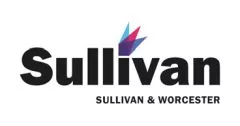How much control should athletes have over their names? Not an unlimited amount, according to one recent court ruling.
Late last month, in Dryer v. National Football League, the Eighth Circuit denied an appeal by three former NFL players who claimed that films produced by NFL Films violated the players' right of publicity and constituted false endorsement under the Lanham Act.
NFL Films is a league subsidiary that repurposes historically significant game footage and interviews into thematic audiovisual productions and licenses these films to various distributors like ESPN. Each of the plaintiffs appeared in game footage featured in the films and conducted interviews for use in the films. The plaintiffs initially were members of a class action against the NFL, but elected to opt out of a $42 million settlement and pursue individual claims. No doubt the players now regret that decision.
The Eighth Circuit ruled that the Copyright Act preempted the players' common law right of publicity claims because the films were expressive, rather than commercial, speech. Citing Porous Media Corp. v. Pall Corp., the court identified three factors to determine whether speech is commercial or expressive: (i) whether the speech is an advertisement, (ii) whether it refers to a specific product, and (iii) whether the speaker has an economic motivation for the speech.
In the instant case, the court first held that the films were not advertisements because they did not propose a commercial transaction or otherwise encourage consumers to make a purchase. Second, the films refer to the league in a historical context, rather than as "a specific product." Third, in their own right the films are valuable commercial products for which consumers are willing to pay. The league's economic interest is in the films themselves, rather than in any product or service that the films are intended to market. Therefore, the films "represent speech of independent value and public interest," separate and apart from the league as a product. Taken together, the court held that the films constituted expressive speech, and the players' right of publicity claims were preempted by the Copyright Act.
The court also affirmed the lower court's grant of summary judgment on the players' Lanham Act claim because the players failed to show that the films contained misleading or false statements regarding their endorsement of the NFL. The players produced no evidence to demonstrate that any of the statements in the films were literally false or implicitly conveyed a false impression, were misleading in context or were likely to deceive consumers. The films feature the players' actual game performances and interviews the players conducted with the films' creators. The players argued that some viewers were likely to misunderstand the extent to which the players continue to associate with the league, and pointed to survey evidence that tended to show that viewers believed that the players endorsed the NFL. Nevertheless, the court held that mere "misunderstanding" is insufficient to give rise to a Lanham Act claim, and upheld the district court's ruling.
The Eighth Circuit's ruling should bring some peace of mind to documentarians, news agencies, and other content producers that create expressive works featuring the names and likenesses of professional athletes, celebrities and average Joes alike. Even though creators may derive significant economic benefits from these types of works, the works themselves are not merely commercial speech. Instead, they contain expressive content that falls within the general scope of copyright. A ruling in favor of the plaintiffs would have expanded the right of publicity and threatened to prevent third parties from creating and exclusively controlling these types of works. By denying the defendants' appeal, however, the court made clear that individuals cannot use state law right of publicity claims to override the federal rights of copyright holders.
The case is Dryer v. Nat'l Football League, No. 14-3428 (8th Cir. Feb. 26, 2016).
The content of this article is intended to provide a general guide to the subject matter. Specialist advice should be sought about your specific circumstances.
We operate a free-to-view policy, asking only that you register in order to read all of our content. Please login or register to view the rest of this article.


